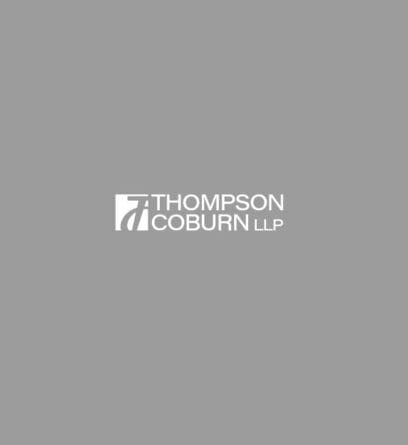UPDATE: On September 2, 2016, the IRS modified the effective date of Rev. Proc. 2016-44 to extend the transition period by six months. The revised version of Rev. Proc. 2016-44 allows an issuer to apply the safe harbors in Rev. Proc. 97-13, as modified and amplified, to a management contract entered into before August 18, 2017 (rather than February 18, 2017 in the original version) and that is not materially modified or extended on or after August 18, 2017 (other than pursuant to a permitted renewal option).
On August 22, 2016, the Internal Revenue Service released Revenue Procedure 2016-44. The purpose of this revenue procedure is to provide revised and broader “safe harbors” under which certain private management contracts will not result in private business use of projects that were financed with the proceeds of tax-exempt governmental or qualified 501(c)(3) bonds.
Potentially impacted issuers and conduit borrowers include governmental and nonprofit healthcare, higher educational and other entities. Market participants have expressed the belief that the more flexible safe harbor provisions may also help facilitate the structuring of public-private partnership (P3) transactions.
The revised safe harbors set forth in the revenue procedure build upon the existing safe harbors originally set forth in Revenue Procedure 97-13, which were in turn modified by Revenue Procedure 2001-39, and amplified by Notice 2014-67. The existing guidance sets forth conditions under which a management contract does not result in private business use, which conditions include constraints on net profits arrangements, the permitted term of the management contract, the types of compensation provided under the arrangement, and the relationship between the parties. Under such existing guidance, the extent to which the compensation to the private party is a fixed amount is key, in that the greater the percentage of fixed compensation, the longer the term of the management contract is permitted to be. Notice 2014-67 provided additional flexibility within the safe harbors by allowing a broader range of variable compensation arrangements for shorter-term (i.e., up to five year) management contracts.
Rev. Proc. 2016-44 builds upon the Notice 2014-67 amplifications by providing a more flexible and less formulaic approach toward variable compensation for longer-term management contracts (i.e., up to 30 years in certain cases). Highlights of the modifications include:
- The revised safe harbor provisions generally permit any type of fixed or variable compensation to the service provider that is “reasonable compensation for services rendered during the term of the contract.”
- The revised provisions retain existing constraints on net profits arrangements. Additional guidance provided includes:
- Compensation to the service provider will not be treated as providing a share of net profits if “no element of the compensation takes into account, or is contingent upon, either the managed property’s net profits or both the managed property’s revenues and expenses for any fiscal period.”
- Incentive compensation will not be treated as providing a share of net profits if the eligibility for such compensation is tied to the provider’s performance in meeting one or more measurable quality standards.
- Compensation to the service provider will not be treated as providing a share of net profits if “no element of the compensation takes into account, or is contingent upon, either the managed property’s net profits or both the managed property’s revenues and expenses for any fiscal period.”
- Rev. Proc. 2016-44 states that it applies a more “principles-based” approach to safe harbor treatment of management contracts, focusing on factors such as:
- Governmental (or 501(c)(3)) control over managed property: Under a safe harbor management contract, the qualified user (government or, in the case of qualified 501(c)(3) bonds, 501(c)(3) organization) must exercise a “significant degree of control over the use of the managed property.” Cited examples include approval of annual budgets, capital expenditures, property dispositions, usage rates, and the type of services provided.
- Governmental (or 501(c)(3)) bearing of the risk of loss: A safe harbor management contract may not in substance impose upon the service provider the burden of bearing any share of net losses from the operation of the managed property. Enumerated factors in determining risk of loss include whether the amount or timing of the service provider’s compensation is determined in relation to the property’s net losses. Conversely, the qualified user must bear the risk of loss upon damage or destruction of the managed property.
- The economic lives of the managed project: A safe harbor management contract may not have a term (including any renewal options) greater than the lesser of 30 years or 80 percent of the weighted average reasonably expected economic life of the managed property.
- The consistency of tax positions taken by the service provider: Under a safe harbor management contract, the service provider must agree “that it is not entitled to and will not take any tax position inconsistent with being a service provider to the qualified user with respect to the managed property” (e.g., taking any depreciation or amortization with respect to the managed property as owner of the managed property or taking any rental payment deduction as lessee of the managed property).
- Nothing substantially limiting qualified user’s exercise of rights: The service provider may not have any role or relationship that, in effect, substantially limits the qualified user’s exercise of rights under the contract (e.g., representatives of the service provider or related parties having enumerated positions within or over the qualified user).
- Governmental (or 501(c)(3)) control over managed property: Under a safe harbor management contract, the qualified user (government or, in the case of qualified 501(c)(3) bonds, 501(c)(3) organization) must exercise a “significant degree of control over the use of the managed property.” Cited examples include approval of annual budgets, capital expenditures, property dispositions, usage rates, and the type of services provided.
Under Rev. Proc. 2016-44, the revised safe harbors are effective for any management contract that is entered into on or after August 22, 2016, and an issuer may apply the revised safe harbors to any management contract that was entered into before August 22, 2016. In addition, an issuer may apply the existing safe harbor provisions to a management contract that is entered into before August 18, 2017 and that is not materially modified or extended on or after August 18, 2017 (other than pursuant to a permitted renewal option).
Steve Mitchell is a partner in Thompson Coburn’s public finance group. Henry Bettendorf is a partner in the firm’s tax group.

